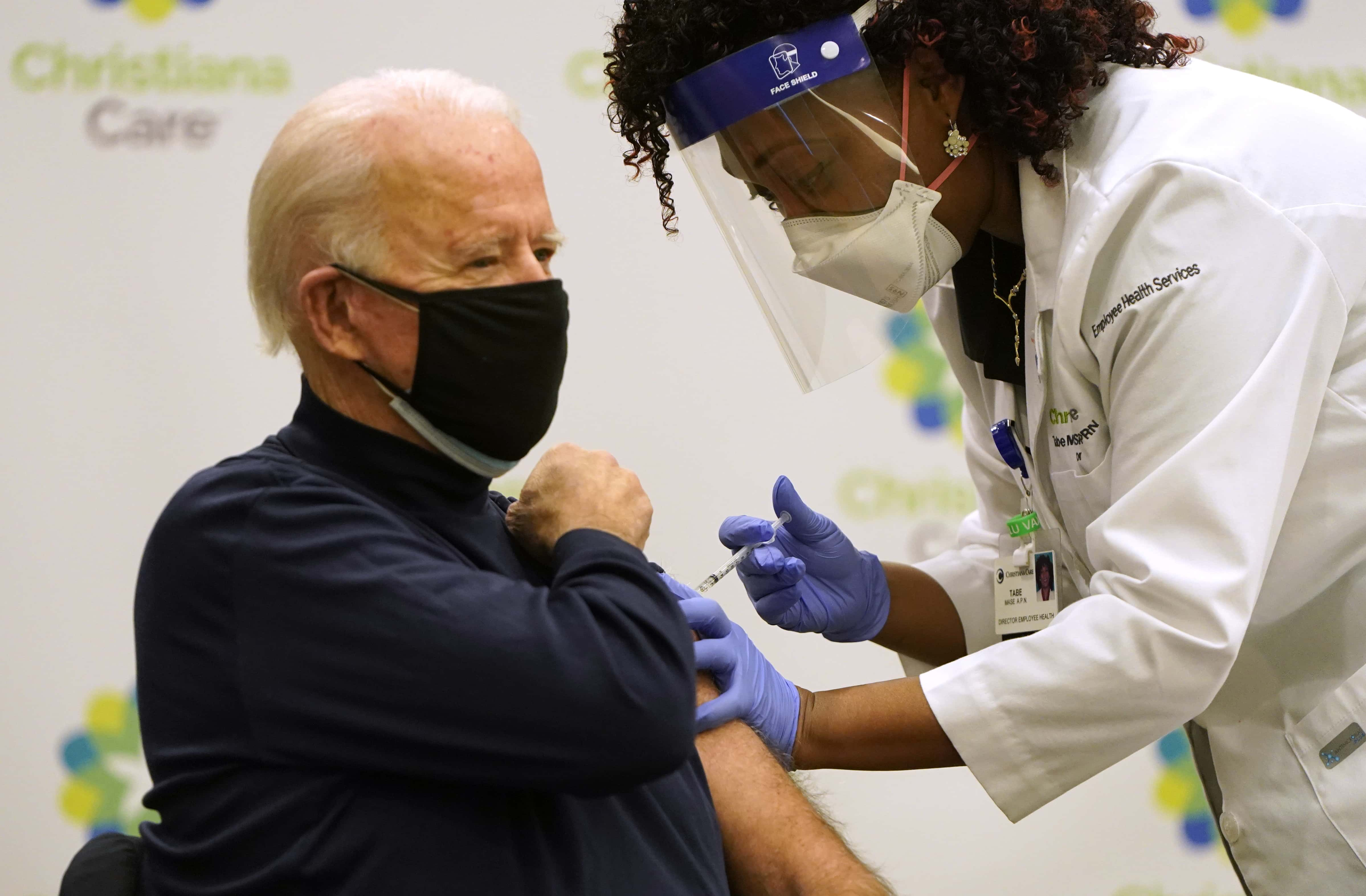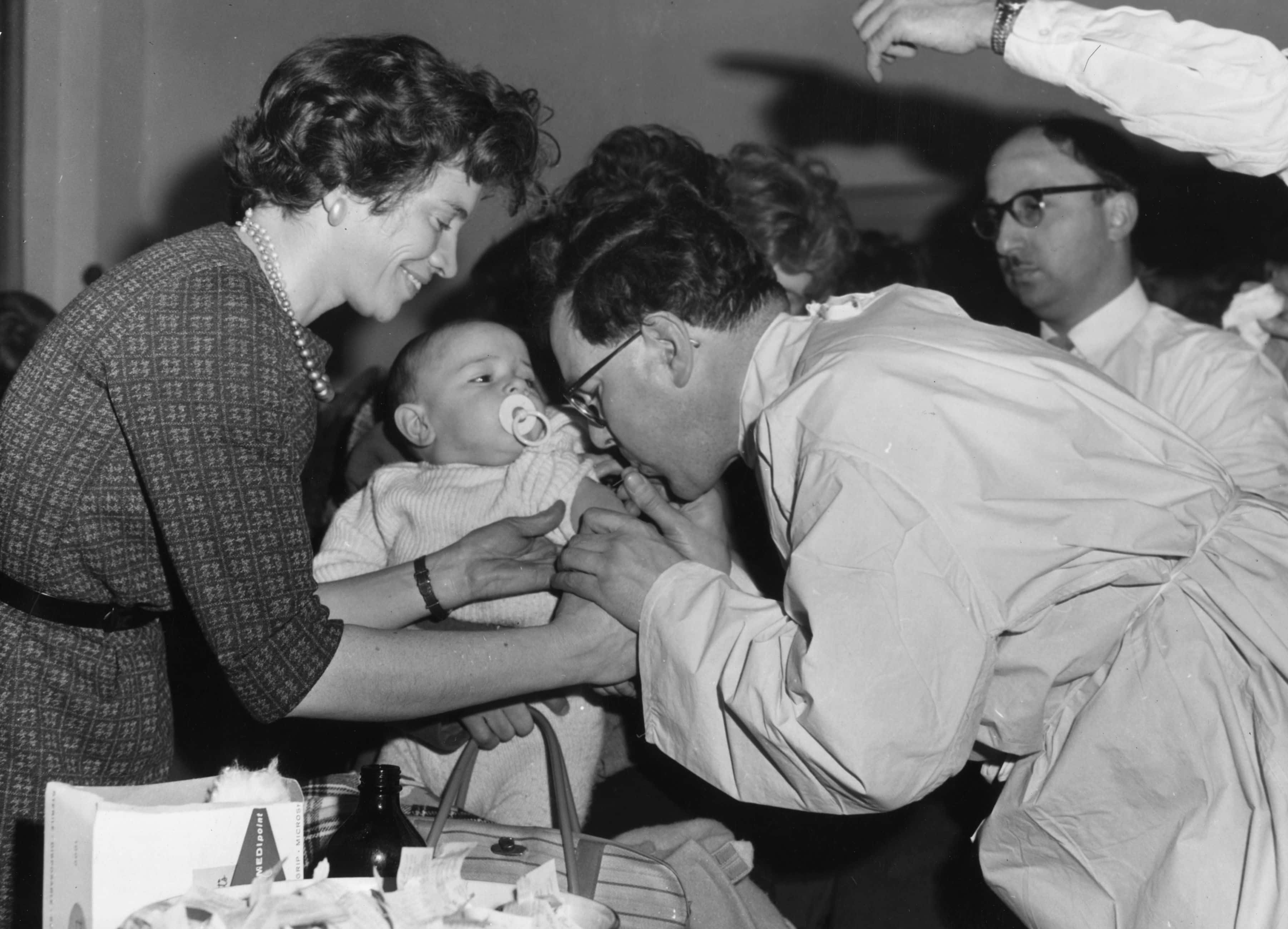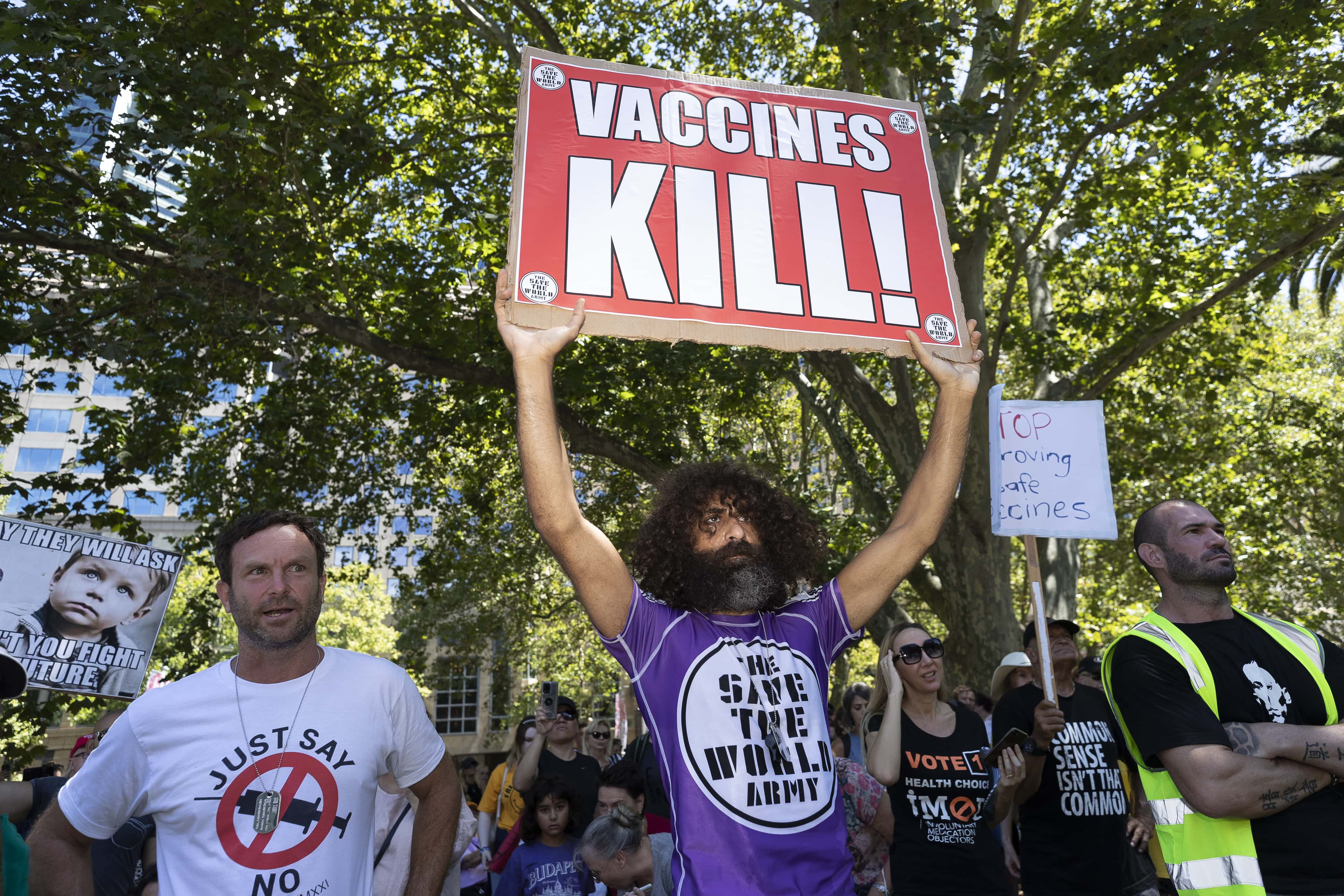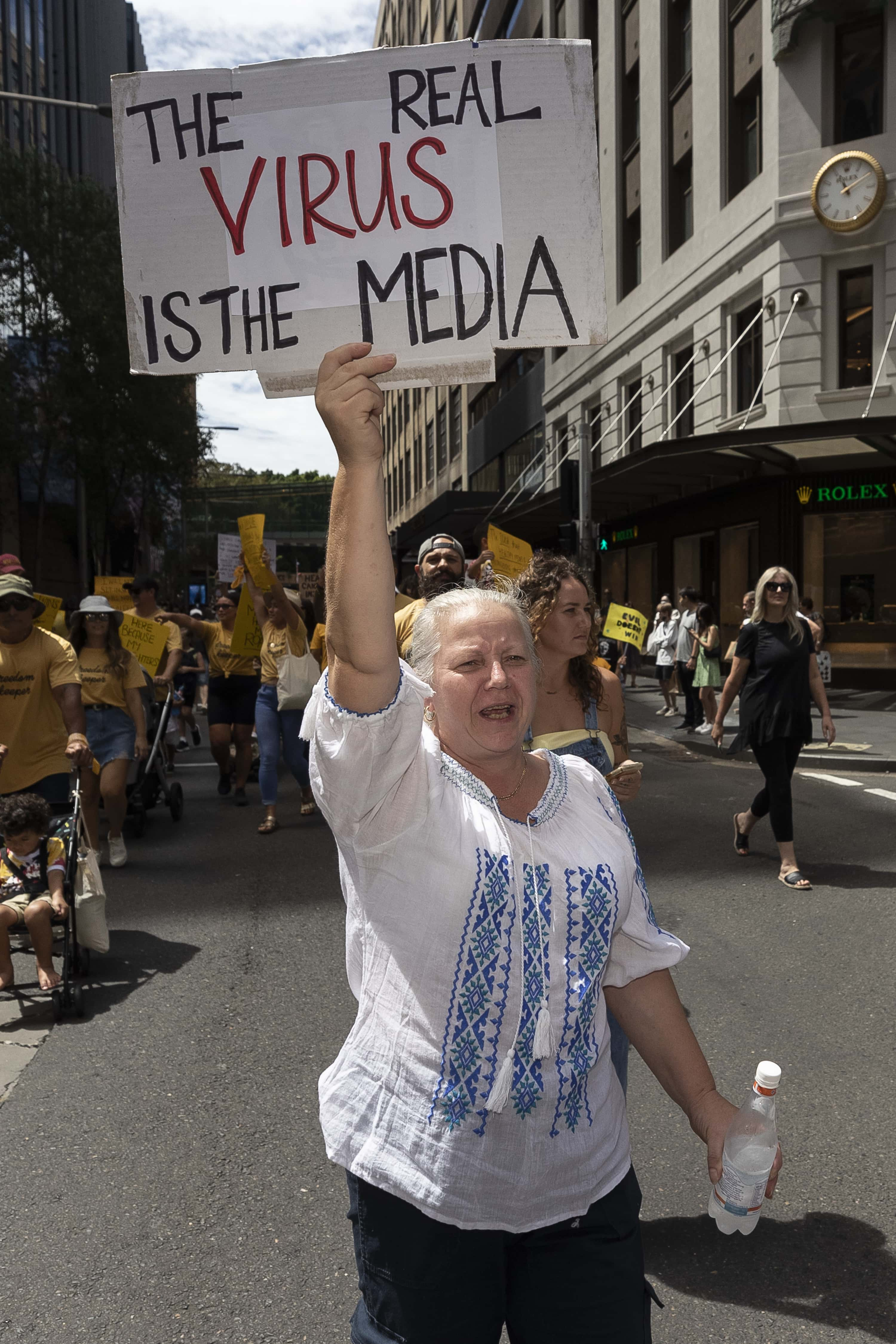Vaccines have been mandatory for years, so why the drama over Covid-19?

Amid the rising fatalities due to the pandemic, the UK government announced plans to make the Covid-19 vaccine mandatory for all care home workers. In May, US several universities announced vaccines would be mandatory for all students in the fall. In June, the Houston Methodist Hospital suspended 178 employees for refusing Covid-19 vaccines. In all these cases, there is one common denominator - people refusing to get jabbed.
The coronavirus is without a doubt one of the biggest challenges humankind has faced in the 20th century. Millions have died, lockdowns have left all of us isolated and health services are still struggling cope, a year on. To make matters worse, new strains are emerging, making the battle against the virus harder. Yet, when the solution is at hand, people are seemingly refusing it. A Texas A&M University School of Public Health study found that roughly 22% of Americans self-identify as anti-vaxxers. Those numbers should concern everyone, as it could be the difference between ending the pandemic and prolonging it with newer, more dangerous variants.
RELATED ARTICLES
Is there a vaccine for HIV? Why the world's most lethal pandemic has been all but forgotten
Interestingly though, it was not always this way. Long before Covid-19, vaccines were mandatoryand there was hardly any pushback. From healthcare workers to military personnel and even general travellers, vaccine mandates have helped us control some of the deadliest diseases in the past. So what changed?

The history of mandatory vaccines
Vaccine mandates aren't a new thing. Back in 1809, the state of Massachusetts made it compulsory for everyone to get vaccinated against smallpox. Those who dissented weren't forced to get vaccinated but did face a $5 fine (around $150 today). Predictably, not everyone was happy and one pastor even sued the state. While that pastor, Henning Jacobson, was fighting his case, anti-vaccination groups backed him up calling compulsory vaccination "the greatest crime of the age." The High Court and even the Supreme Court rejected Jacobson's claim, saying that fundamental rights may "be subjected to such restraint, to be enforced by reasonable regulations, as the safety of the general public may demand."
That ruling paved the way for vaccine mandates in the US. From the 1960s, all states have laws in place that requires children to be vaccinated before enrolling in public, or private schools. Those vaccines cover everything from polio, to measles and rubella. Of course, there are exemptions, but by and large, most Americans have heeded to these mandates since they were first introduced. Over the years, these laws have been subject to numerous court cases, mostly on grounds of objection due to "religious" beliefs. But, they haven't become a national rally against vaccines.
Vaccine mandates have played a critical role in our public health. Thanks to them, we have eradicated smallpox, while diseases like polio, measles and even the flu are now no longer cause for major concerns, let alone lockdowns. Mandating vaccines doesn't just protect individuals who get their shots, but also those who cannot. That's because of "herd immunity", a concept where a sufficient percentage of the population has been vaccinated to ensure the disease can no longer spread freely.
Since the 1900s, we have come a long way. Most vaccines have proven to be safe and effective and we have quashed earlier pandemic-causing diseases. To ensure we don't go back, the vaccine mandates remain in place today, with little opposition. They have also spread beyond school enrollment.

Vaccines that are compulsory today
As of 2021, all 50 states in the US mandate vaccines for children and allow exemptions on medical grounds. Barring California, Maine, Mississippi, New York and West Virginia, all states also have exemptions on religious grounds, while 16 states allow objections on personal, conscientious, or philosophical grounds. The US Department of Defence also mandates vaccinations for enlistment. A 2006 paper estimated that 2.6 million current members and 24.8 million living veterans have been vaxxed through the military. The DoD mandates service personnel be vaxxed against a wide range of diseases, from yellow fever, diphtheria, mumps, polio, anthrax, smallpox and rabies. These mandates range from one-time shots to annual, and so far there have been almost no known cases of people challenging these mandates.
International travellers have also been required to get vaccinated, since 1935. The International Sanitary Convention for Aerial Navigation introduced "yellow cards" or vaccine passports as some would call it to help limit the spread of vaccines across international borders. Formally called the International Certificate of Vaccination or Prophylaxis (ICVP), the card has to be shown at immigration indicating that the individual has been vaxxed against diseases like smallpox, cholera, yellow fever, and typhus. Today, it is most commonly used to control yellow fever, since smallpox has been eradicated and vaccines against cholera haven't always helped limit the spread of the disease.
Healthcare workers (HCW) have also been required to get vaccinated, with the World Health Organization noting that "It is expected that HCWs are fully vaccinated per the national vaccination schedule in use in their country. You may not have seen the ICVP before, but it is still very much in use. It is mostly used by travellers from emerging nations, where disease outbreaks are still common, and not as easy to treat. It's important to note that throughout history, people have dissented against mandatory vaccinations, but in the end, science has always prevailed. The ICVP is credited with helping eradicate smallpox and severely limit the spread of yellow fever. But all that changed with Covid-19.

Why is Covid-19 so different?
Right from the outset, mandating the Covid-19 vaccine wasn't going to be an option. There has been a large uptick in the number of anti-vaxxers, with Covid-19 acting as a breaking point. But what changed? As with most things, the answer can be traced back to social media. The Centre for Countering Digital Hate noted that 31 million people follow anti-vaccine groups on Facebook, with 17 million people subscribing to similar accounts on YouTube. Social media has led to the rampant spread of misinformation while encouraging people's worst fears. It's a dangerous cocktail that has already led to consequences - like the election of Donald Trump and Brexit - but we are now beginning to just how deadly it is for public health.
"Attention-grabbing headlines with sensationalist content can attract even the savviest internet users and studies have shown they tend to generate more user engagement," the Organisation for Economic Cooperation and Development noted. "As a result, content personalisation algorithms can repeatedly expose people to the same or similar content and ads even on the basis of disinformation." But that's just one side of the story.
Another major reason for the distrust in the Covid-19 vaccine has to do with the hyper-charged media environment we are currently in. Protesters in 1809 didn't have Tucker Carlson and when yellow cards were introduced in 1935 politicians weren't spreading misinformation in the media. Today, conspiracy theories aren't just relegated to dark corners of social media, they have jumped to primetime TV. "It turns out there are things we don’t know about the effects of this vaccine — and all vaccines, by the way. It’s always a trade-off," Carlson once said on his show.

It's true there's a lot we don't know about the Covid-19 vaccine. It is also true it was created at a historically rapid rate, so it is fair to have some questions. But there can be no questions about the safety of the vaccine. Over 300 million doses have been administered as of June 7, 2021. Almost none of those doses have directly been responsible for deaths. It is true people have died after getting their shot, but the CDC is yet to make a direct correlation between those deaths and the vaccine. Even if there are concerns, as with the Johnson & Johnson shot, the government is monitoring and responding in real-time. But thanks to the deadly combination of right-wing media and social media, these facts are often buried for sensationalist headlines.
So far, there have been few efforts to make Covid-19 vaccines mandatory. When they have, they have been met by immense backlash and threats. Take for example the Houston hospital. The judge ruled that "Methodist is trying to do their business of saving lives without giving them." It does echo similarities to the Jacobson case in 1809. Whether this case will help lay the foundation for a Covid-19 vaccine mandate remains to be seen. With people like Carlson, Marjorie Taylor Greene, and social media thrown into the mix, we cannot believe history will repeat itself, but it should if we are to end the pandemic.
Sources
Congressional Research Service, Digest of International Law Vol. 9, Epidemiologic Reviews, Futurity, History.com, National Conference of State Legislatures, The Lancet Digital Health, The Washington Post, Organisation for Economic Cooperation and Development, World Health Organization










